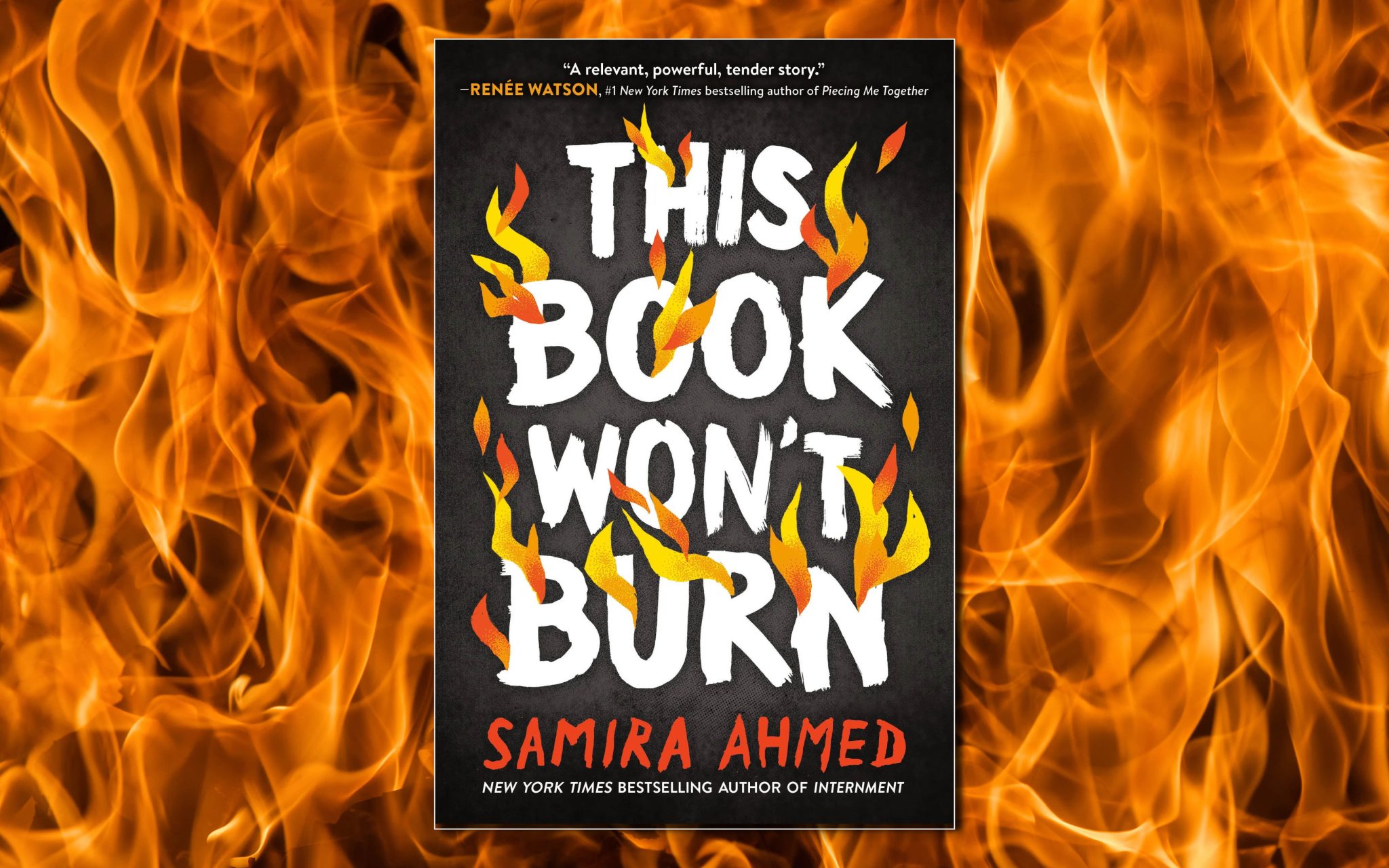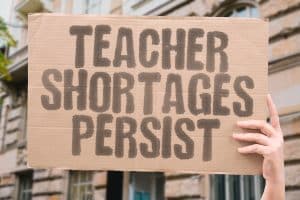The removal of books from American public-school libraries is a story that is sadly playing itself out across our country. Books are being removed under the guise of ‘content review’ and ‘age- appropriateness’, but the truth is: books are being banned in schools. In Samira Ahmed’s latest novel, This Book Won’t Burn, we meet Noor Khan; a high school senior who comes face to face with book bans and risks everything to fight back.
Noor Khan’s life is upended after her father suddenly abandons her family. Her mother, to mitigate the pain of this loss, moves her family from downtown Chicago to a small town in the suburbs, Bayberry, Illinois. With only a few months left in the semester, Noor and her sister Amal, become the new kids- a tough situation for any teenagers, but particularly tough for two Desi Americans who stand out in their new predominately white town. With only a few months until graduation, Noor decides to keep her head down, avoid new friendships and do what it takes to get through the year, so she can return to the city in the Fall as a freshman at University of Chicago. However, Noor’s plan doesn’t account for her own personal kryptonite: injustice. When she discovers hundreds of books being removed from her school library due to challenges from right-wing parents, Noor becomes Bayberry’s outspoken leader against book bans- pitting her against some of the most powerful people in town. When extremist politics and bigotry ignite into hatred and violence, Noor must decide if it is worth risking it all to do what is right.
This Book Won’t Burn could, sadly, be telling the story of any number of school districts in our country today. Driven by fear, parents’ rights groups, such as embattled Moms for Liberty, target books they assert include offensive or explicit material. Not surprisingly, these targeted books are often written by BIPOC or LGBTQ+ authors; telling stories based on lived experiences and chronicling the challenges of marginalization in America. We saw this unfold in Pennridge when dozens of books were removed from our high school library under a policy drafted by the PA Family Council. In time, it was revealed that not only were books removed at the behest of two school board directors, but previous district administration had attempted to lay the blame on a single employee. Thanks to some dedicated community crusaders and new school board leadership Pennridge has seen many of these books returned to the shelves; however, some titles remain under review.
In This Book Won’t Burn the students, with the help of a handful of adults, become the driving force against censorship. Noor and her friends created a banned book club, built and stocked free libraries throughout town and organized protests against bans; mirroring real-life resistance. Ahmed skillfully captures the dialogue and dynamics of teenage friendship and romance, creating a cast of relatable, funny, and endearing characters. Cleverly, Ahmed weaves the titles of contemporary banned books throughout her narrative, teasing plotlines and leaving the reader with a list of must-reads. There are subtle references to other hot-button public school issues throughout the novel, such as: student advocacy, harassment, dress codes, hate crimes and the silencing of teachers.
READ: The Bucks County Courier Times Fails Readers With Its Book (Banning) Policy Editorial
Extremists aim to foster ignorance and nurture fissures of division by controlling content in school libraries. Noor’s English teacher may have said it best, telling her class: “Book banning has long been used to silence those who want to speak out, those who are unwilling to be gaslit into thinking they are living in the best of all possible worlds.” Denying students access to diverse stories and experiences limits their education and eliminates an outlet that can be particularly meaningful to vulnerable students. Now, more than ever, we must make sure that the story Samira Ahmed tells in This Book Won’t Burn remains relegated to the pages and stops playing out in our schools.







